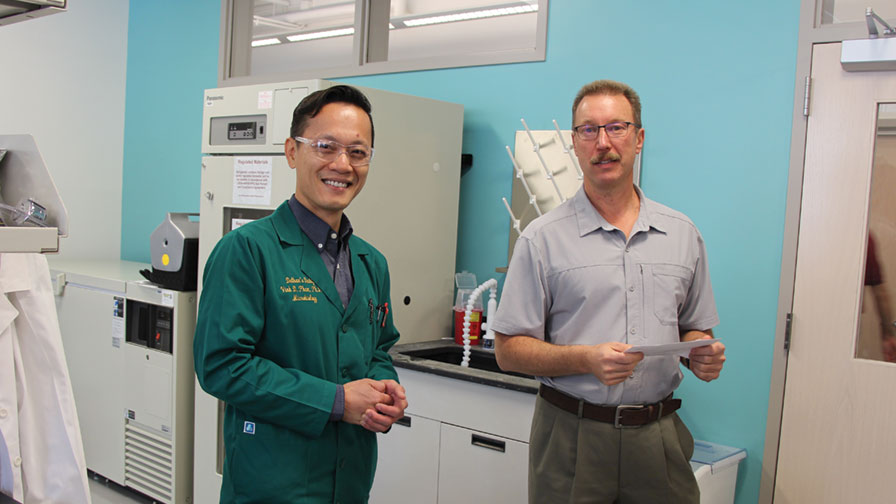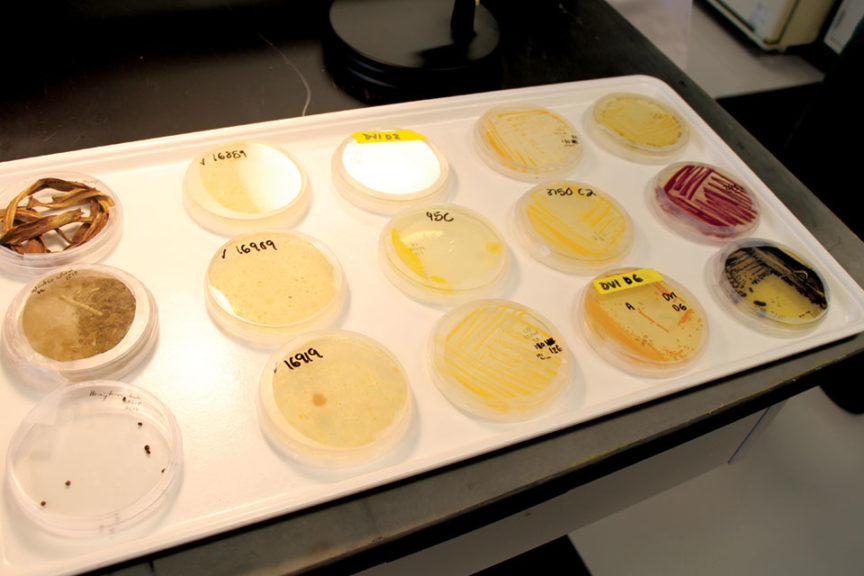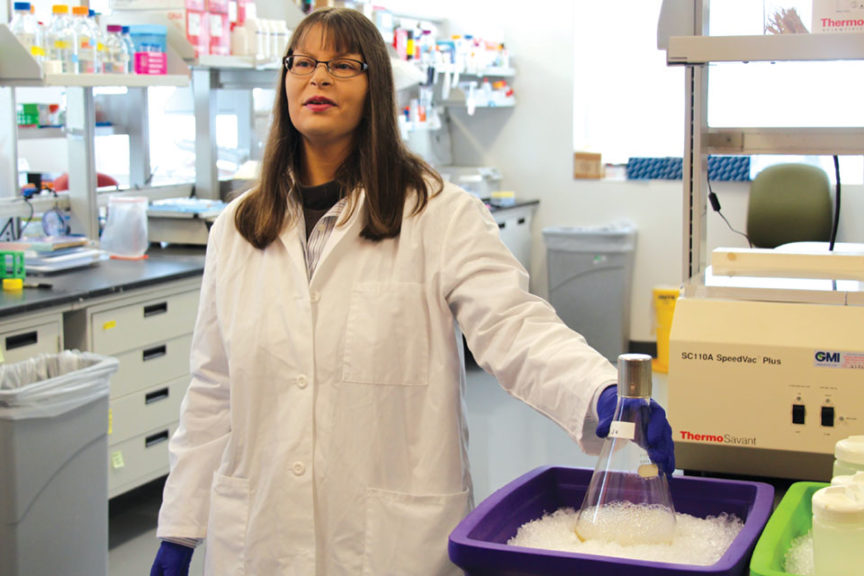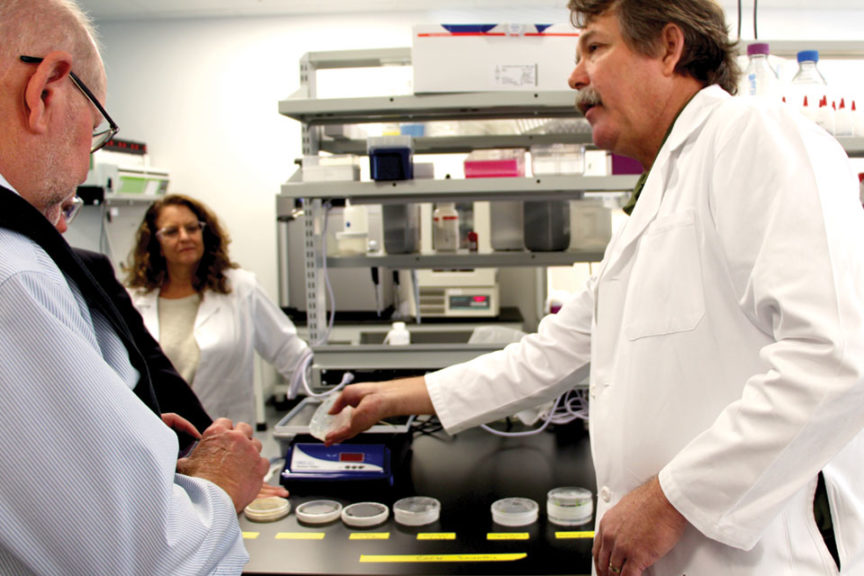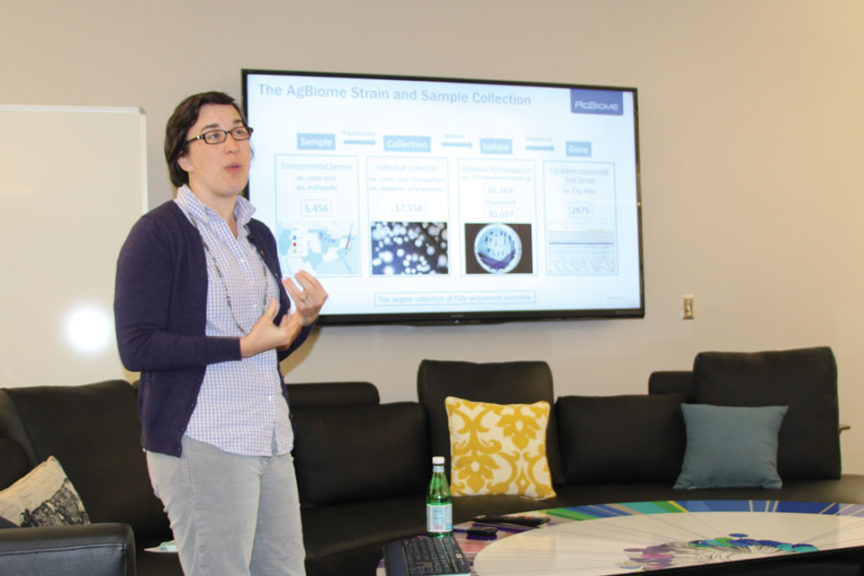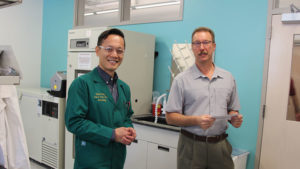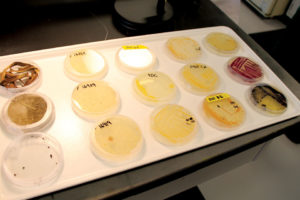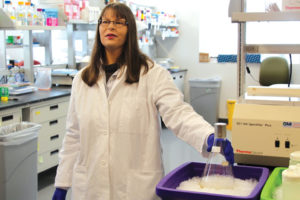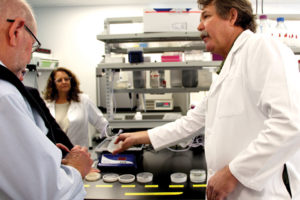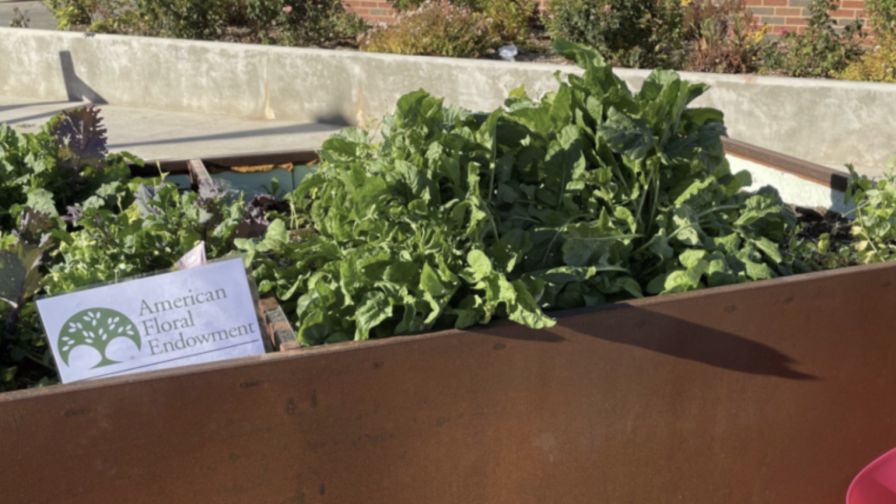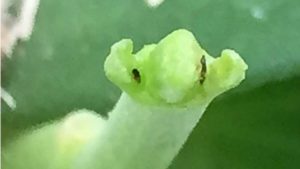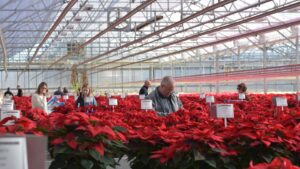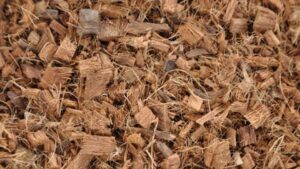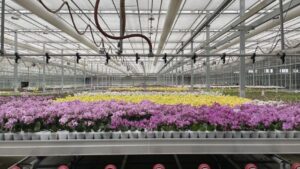AgBiome Will Enter the Ornamentals Market With a New Biological Fungicide
There’s a new company entering the market that is aiming to be a game-changer in the world of plant protection. AgBiome, a biological and biotechnology trait discovery and development company, started in late 2012 by six founders, including Eric Ward and Scott Uknes, veterans of the crop protection scene, with the vision of becoming a market disrupter and “the most successful agriculture innovator.” Financially backed since 2013 by some of the world’s leading agribusiness companies, including Monsanto, Novozymes, and Syngenta, as well as Arch, Bill & Melinda Gates Foundation, Harris and Harris, Innotech, Polaris, Pontifax, and UTIMCO, AgBiome has set its sights on innovation and efficacy.
“This dream syndicate came together in a unique way to move the company forward,” says John Rabby, commercial director. “This sort of combined investment is unprecedented to our knowledge, and is both a testament to AgBiome’s vision and a catalyst for innovation in the space.”
The company is backing up this vision with its actions — everything about it is different, from the employee-focused, no-boss, results-oriented corporate culture, to the biological- and biotech trait-based products it’s bringing to market. It’s not focused specifically on being organic, nor is it anti-chemical. Rather, AgBiome’s mission is to provide solutions to growers that will integrate effectively with chemical, biological, and organic controls, and help crops unlock their yield potential.
Registration for New Biological Fungicide Nears
AgBiome expects registration for its first commercial product, a biological fungicide, as early as March 1, but certainly sometime this spring.
Known as Zio in turf and ornamentals, and Howler in the agriculture and specialty ag/food crops market, the fungicide provides preventative activity against soilborne diseases caused by Rhizoctonia, Phytophthora and Pythium, as well as foliar diseases including Anthracnose and Fusarium blight. It has a minimal restricted entry interval and will be Organic Materials Review Institute (OMRI)-listed.
Zio, developed from Pseudomonas chlororaphis, is a fermented microbial strain that’s formulated into a wettable powder, which mixes into water. It works in three different ways, with multiple modes of action. It has antimicrobial compounds, which work similarly to chemicals in that they affect fungal metabolic processes. It has enzymes that directly affect fungi by breaking down the walls and skeletal structure of fungi, and preventing fungal spores from attaching and infecting plants. Finally, Zio is a living organism that rapidly colonizes root tissue, plant parts, and soil, competing for space and nutrients with pathogens. This induces plant pathogen resistance mechanisms, similar to a vaccination, and provides both preventative and curative activity against disease.
In the turf and ornamentals market, AgBiome has aligned with SePRO Corporation to represent and distribute Zio. SePRO’s Turf and Ornamentals Product Leader Jeff Atkinson says the partnership is exciting, as the two companies have similar missions and values.
“At SePRO, innovation is our mission, as well, and our company and AgBiome share similar views as to where the future of the industry is heading,” Atkinson says.
SePRO’s Ornamentals Portfolio Leader Mark Brotherton adds that the company is continually interested in forming partnerships that will help solve customers’ challenges in innovative and sustainable new ways.
“Our partnership with AgBiome continues that trend,” Brotherton says. “The AgBiome discovery and development platform is unlike any we’ve seen, and we are excited to introduce this technology to our customers.”
Discovery Platform Feeds Innovation to Develop Solutions
AgBiome is centered on the discovery of the billions of microbes that exist in the plant soil microbiome. The company believes that plant health — and maximum yield potential — cannot exist without a healthy microbiome. From its research and discovery, the company is focused on developing products in two different families: Biologicals, which will be strains developed and used directly as products; and traits, which will be genes used in crops.
Through team members’ travels, as well as volunteers sending samples directly to the company, AgBiome harvests hundreds of environmental samples from agriculturally relevant environments across the U.S.
“There’s a microbiologist in all of us,” says Microbiologist Vinh Pham of friends’ sample contributions sent in from their land, vacation, car windshields, and various other collection points.
With a team of professional microbiologists, biochemists, plant pathologists, nematologists, and entomologists, the company isolates thousands of microbes, and evaluates them for efficacy on insect, weed, disease, and nematode pests.
Using its proprietary discovery platform, the Gene and Strain Identification System or Genesis, the “scientific machine” or team at AgBiome has analyzed every microbe collected, and fully sequenced each genome and family of genomes. AgBiome currently holds the world’s largest, most diverse, fully sequenced collection of microbes (more than 35,000).
AgBiome’s in-house big data group, BioInformatics, is run by a team of microbiologists trained in computer science. The group helps the company collect and catalog data about each genome, group them together by type, track DNA sequences through metadata, and match these microbial organisms with screens for insect, disease, and nematode control. This approach has led to the discovery of lead strains and new insect control genes, with hundreds of potential combinations of new products that continue to be developed and analyzed. AgBiome has tested 400 genes so far, and has found 10 different modes of action.
The company has also recruited a world-class group of formulation scientists to do the complex work of developing sprays, powders, and other appropriate applications for the products AgBiome creates. Additionally, the company hopes to help other crop protection companies with their formulation needs.
AgBiome Garners New Recognition and Grants
In January, AgBiome was named a Most Innovative Startup by AgFunder, as part of its Innovation Awards, a program created to recognize companies introducing transformative technology to drive agriculture forward.
The awards, the first of their kind to recognize leadership in agri-tech innovation around the globe, were introduced last year. The winners, based on peer nominations from a global network of 25,000, spanned novel crop inputs, robotics, supply chain efficiency, precision ag, and more. AgBiome was one of 23 companies to be awarded in five categories, and one of five recognized as the most innovative U.S. startups.
Last year, AgBiome received two grants from the Bill & Melinda Gates Foundation. The most recent, awarded in December, is a multi-year grant, “Broad-Spectrum Biological Control of Fungal Diseases,” which will fund the evaluation and development of lead, proprietary biological fungicides in the fields of African smallholder farms. The aim of the project is to identify and validate biological fungicides to control major crop diseases of importance in Sub-Saharan Africa.
“We are delighted to work with the Gates Foundation on this important project, which aims to direct AgBiome’s deep expertise in biological disease control toward helping farmers in the poorest countries,” says AgBiome Plant Pathologist Mathias Twizeyimana.
Opportunities Abound for Discovery and Innovation
AgBiome fills a unique space in the crop protection market with the recent consolidation of the power players and the fairly slow pace of innovation in conventional crop protection, Rabby says. Add these challenges to the active ingredients that are currently in jeopardy due to regulation by both government and the court of public opinion, and there is a fast-growing, increasing need to introduce products faster, Rabby says.
By focusing on developing biological products, the rollout is quicker due to the shorter product development timeline. AgBiome aims to introduce products that will both complement current offerings, as well as fill in some of the existing gaps in plant protection.




